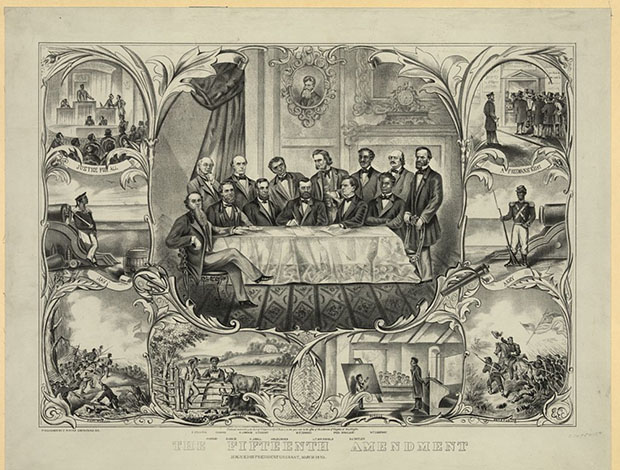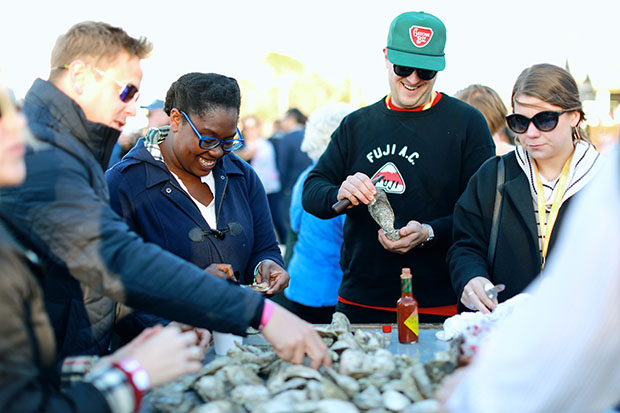From slavery to the hallowed halls of U.S. Congress
06 Jan 2022
The brave and daring life of Robert Smalls
By Tim Lowry

You’ve heard it in many a movie trailer. A baritone voice in ominous tones sets the scene for a smash hit action/adventure movie with the immortal phrase, “In a world . . .”
What usually follows is an unbelievable set of circumstances requiring copious amounts of popcorn and soft drinks to be believable.
However, there are those rare individuals from real life that have such an amazing story that their narrative demands dramatic treatment. Such is the life of the late Mr. Robert Smalls of Beaufort, SC. (1839-1915)
It has been reported that a movie is in development, and I can’t imagine the biopic film beginning any other way. Robert Smalls was born enslaved to the McKee family in Beaufort, SC.
By the age of twelve he found himself “farmed out” to another master in the big city of Charleston. During the next several years, as politicians ranted and raved over the explosive topic of secession and civil war, Robert quietly went about his life managing to steer a course from waiter to dock worker to steamboat pilot to devoted husband and father.
He lived in a room over a horse stable with his wife Hannah, his daughter Lydia, and an infant son named after himself. By agreement with his master, he was allowed to earn money from extra duties and hoped to eventually save enough cash to buy his wife’s freedom as she and the children (according to South Carolina law) were “owned” by a different master. This plan was interrupted by the first shots of the American Civil War. The steamboat on which Robert served was converted into a Confederate gunboat. Robert found himself required to pilot a vessel being used by a rebel government to ensure that he, his wife, and little children would never see the freedom of which they dreamed. The situation was intolerable.
Sailing Into Freedom
On May 13, 1862, under the cover of darkness and while the captain and crew were ashore, Robert Smalls put his family with several other enslaved individuals aboard the gunboat known as the Planter. With the same quiet determination and careful planning with which he undertook any endeavor, Robert successfully steered the boat past four checkpoints through the heavily guarded Charleston Harbor.
The final checkpoint was Fort Sumter, looming large and ominous at the edge of the Atlantic Ocean. Having overheard someone say that in profile Robert resembled the ship’s captain, he donned the captain’s hat, stood in the pilot house of the steamship, and gave the secret signal to be allowed safe passage.
The ruse not only worked, but completely fooled the Confederate sentry on duty, who reportedly yelled out to the “captain” of the Planter, “Blow the damned Yankees to hell!”
Ironically, when he was safely beyond the cannons of Fort Sumter, Robert turned the whole ship and its guns over to the blockade of Union ships anchored beyond the harbor and thus began his notable career in the United States military.
As an experienced seaman, Robert wanted to join the U.S. Navy but there was a literacy requirement and Robert could not read or write. However, the U.S. Army had no such requirement and so he officially enlisted. He was immediately loaned to the navy for services as a gunboat pilot on the Planter, which was now flying the Stars and Stripes instead of the Confederate flag. It was no time at all before Robert had the opportunity to distinguish himself as a brave and dedicated sailor.
During a particularly explosive engagement with the enemy, the ship’s captain ordered Robert to run the gunboat aground and surrender the vessel. Robert tried to explain to the captain, a white man, that while he would be given quarter as a prisoner of war, the enemy considered Robert a “fugitive slave” and he would certainly be hanged.
Locking the unreasonable captain in a room below deck, Robert took command of the vessel, steered it safely through a barrage of enemy fire, and saved the Planter from capture and possible destruction. After an official inquiry, the cowardly captain was dismissed from his position and Robert Smalls was elevated to commander of the ship, the first Black man to achieve the ranking in the U.S. Navy.
At the war’s end, Robert became a well-respected member of the community in Beaufort, SC. He eventually bought his old master’s home and lived in the very residence where he was once enslaved. Working with tutors, he had taught himself to read, and was elected to the S.C. State House. His signature piece of legislation was the bill that provided free and compulsory education for all children, black and white, in the state of South Carolina. He also served two terms in the U.S. House of Representatives, distinguishing himself as a defender of African American interests during the Reconstruction Period.
Throughout his long and distinguished life, he consistently exhibited great dignity and humility in all circumstances and a tremendous capacity for charity and forgiveness, even going so far as to care for his old master’s wife when she found herself invalid and destitute.
However, even though he never conducted himself as a hero—and an epic film in which he was the subject was a long way off—Robert may have had an inkling that his story was the stuff of legend. On a particular sunny afternoon in Charleston, when he came face-to-face with the former owner of the Planter, he boldly walked up to the man, shook him by the hand, introduced him to a colleague, and proudly stated, “This man made the Planter, but I put the polish on her!”
In a world where a man rises from slavery to the hallowed halls of the US Congress by his own wits, it takes determination and fortitude. Robert Smalls’ story is worthy of coming to a theater near you.
Storyteller Tim Lowry is a Southern raconteur from Summerville. Learn more at www.storytellertimlowry.com.












